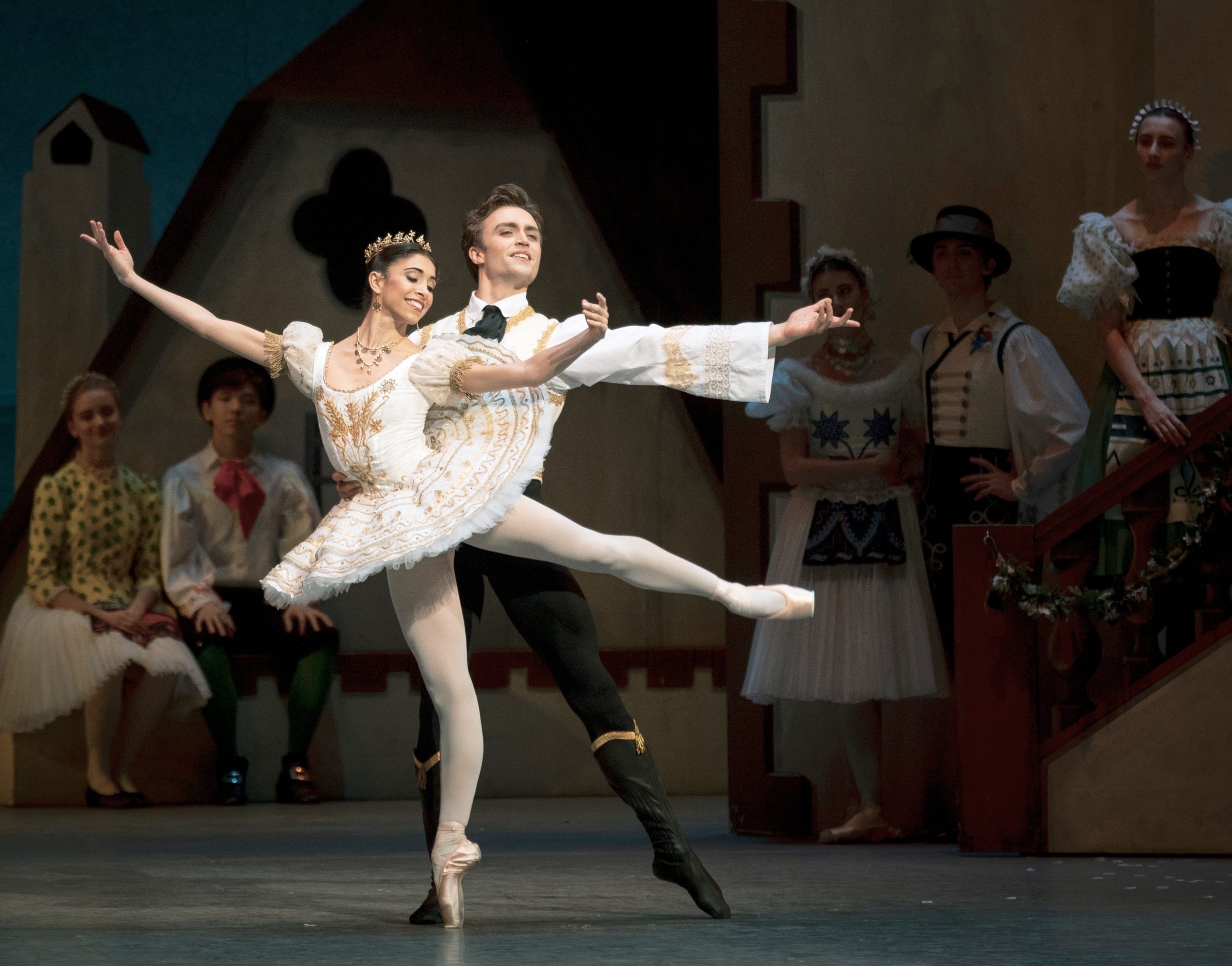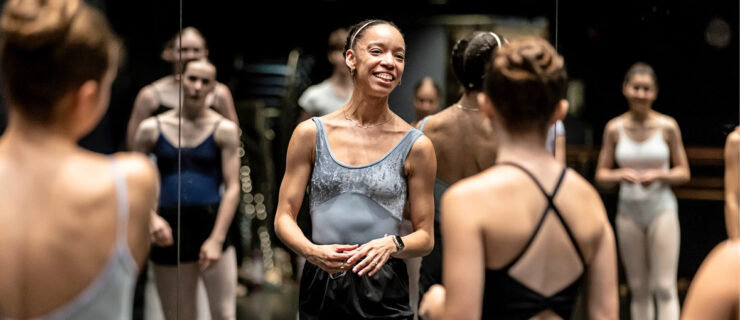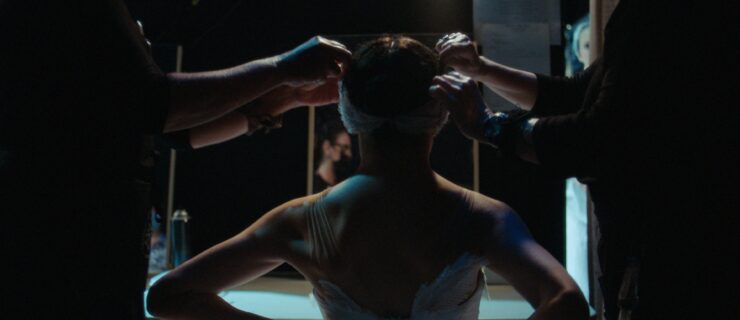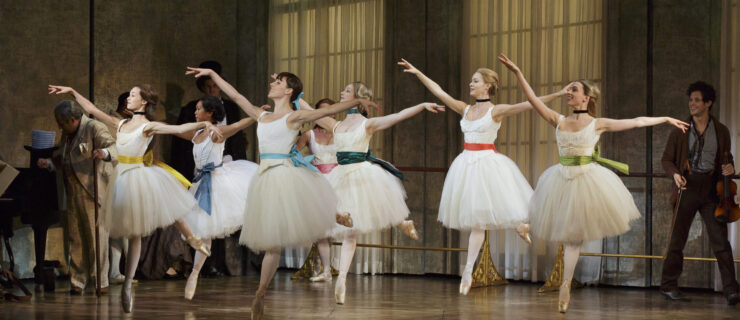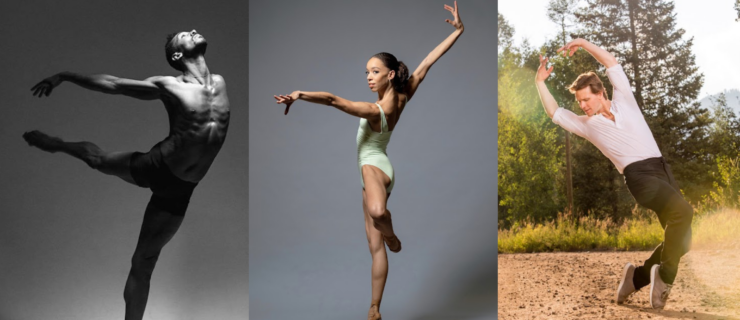New Memoir by Sabine Naghdi, Mom of Royal Ballet’s Yasmine Naghdi, Recounts a Ballet Parent’s Journey
As Royal Ballet principal Yasmine Naghdi was going through pre-professional training at The Royal Ballet School, her mother, Sabine, recalls people saying to her, “Oh, it must be such a hard journey.” To which Sabine would jokingly reply, “Oh, I could write a book about it!”
Fast-forward years later, and she found herself at the stage door of the Royal Opera House after Yasmine, now a principal, had just completed a performance as Odette/Odile in Swan Lake. A mother whose daughter was a student at The Royal Ballet School approached Sabine asking for her advice.
“I tried to give her a constructive answer, but you can’t put it in one or two sentences,” she recalls. “This really urged me, at the beginning of the pandemic, to write down everything I have gone through.”
Sabine’s experience is now captured in her new memoir, Tears of a Ballet Mum ($44; also available online via Amazon and Barnes and Noble). In it, Sabine captures all the ups and downs of supporting her daughter on the road from training to professional life. The book culminates with a tête-à-tête conversation between mother and daughter. “I hope what I’ve written will be helpful, constructive and support parents who are in the start of their journey.”
Sabine chatted with Pointe about her new book, the importance of building mental strength in young dancers early on, and the joys of ballet through the eyes of a parent.
Do you have a ballet background yourself?
From age 11 to 16, I took one ballet class a week in Belgium, where I am from. By 16, I loved all the arts—opera, architecture, paintings and of course ballet. I am now an academic and arts historian.
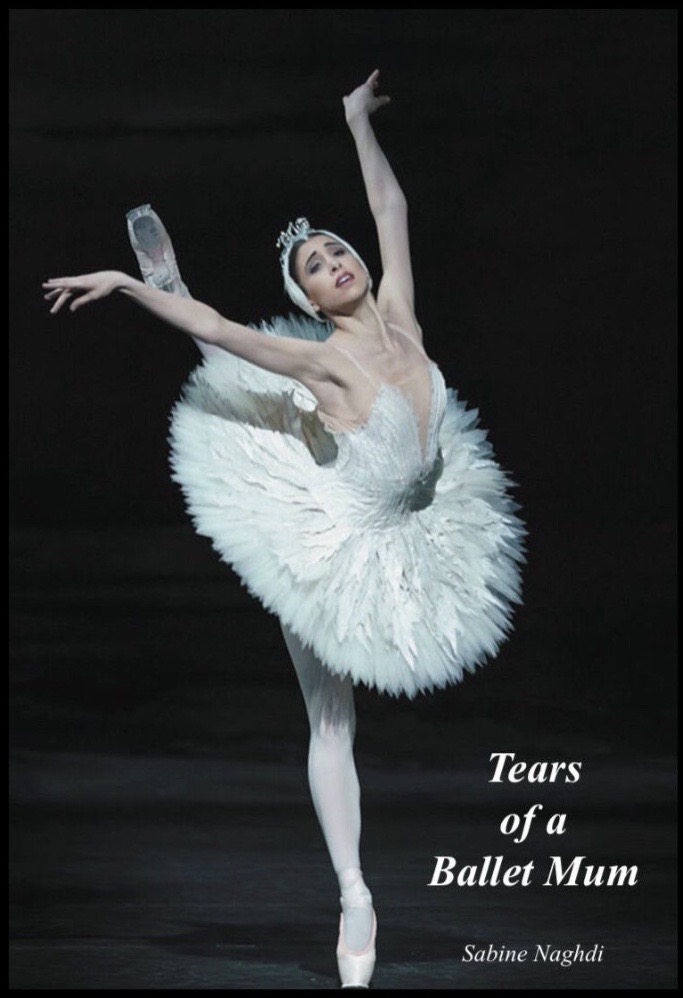
You read a lot of dancer biographies and books on injuries when Yasmine was first starting out, which made you hesitant initially to let her pursue ballet professionally. What made you ultimately decide to let her do this?
There was something in me that felt that I didn’t want to use my power as a mother to influence my daughter’s life. I thought if it’s meant to be, it’s meant to be. I noticed that Yasmine thrived in that environment. Her father and I wanted her to be an academic and go to university. But then how can you, as a parent, tell your child “No, this is what we want, so you can’t do this”? We never stimulated her going to The Royal Ballet School, and we didn’t stop her either. We followed her in a way, without interfering.
You talk a lot about mental health in the book, which is so important for dancers. How did you support Yasmine in that regard?
Studying sports psychology and nutrition [during Yasmine’s training years] was really great, since I could see similarities between sports training and ballet. The most crucial stage is the teenage years. A teenager’s sense of self-esteem and self-worth can go very wrong, especially since many young girls go through physical changes in their bodies. What I really worked with Yasmine on was to build her self-worth. Self-worth is twofold: a sense of personal worth and personal competence. What I understand now is that mental strength has to be set up early on, by the time a dancer is 11 or 12 years old. If that is established, you won’t be building a house on weak foundations.
There is so much negativity around the ballet world nowadays, ranging from toxic workplaces to abuse. What advice do you have for parents whose children are on the pre-professional track?
Negativity is all around us, not only in the ballet world; it is equally found in the sports world, in academic schools and in the workplace environment. Our society has changed dramatically, and what was considered “acceptable” in education a decade ago—or what was tolerated without questioning—no longer is. Mental or physical abuse is totally unacceptable because it creates weakened and affected individuals, and it results in the total opposite of what should be the aim: to produce confident, happy and healthy young dancers.
As parents, we have to ensure that our children are sufficiently equipped with the tools in order for them to be able to deal with the mental challenges they will encounter during their years in ballet training. We have to aid them in building a strong mind and in establishing a solid sense of self-esteem.
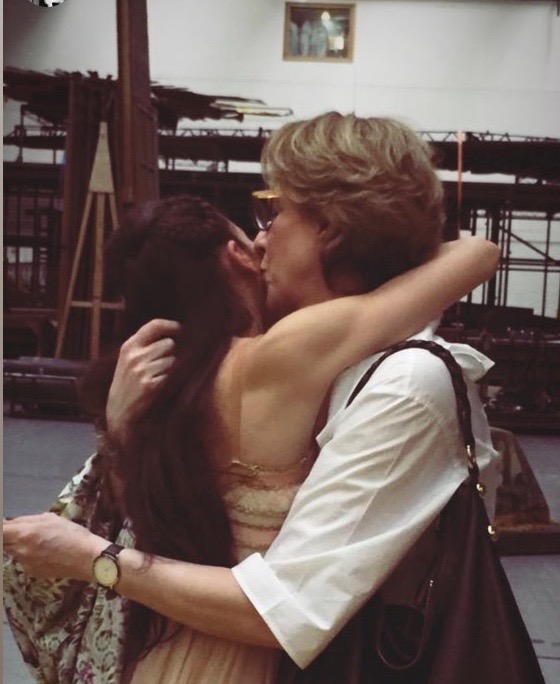
When training at a pre-professional level, there is, of course, no place for mollycoddling; it is tough, and the road is long. Pre-professional ballet training demands a high degree of toughness, and as long as the teaching methods are based on fairness, showing respect of the individual student, absence of favoritism in the ballet studio, and understanding their mental needs, ballet students will cope with the physical demands of training. Their mind needs to be positively nurtured so that they can grow into confident young dancers without having to carry ill-affecting mental baggage.
What has been the best part of this journey for you?
That we have successfully gone through the training and Yasmine reached the top of her profession. I also have learned so much about myself alongside her. It’s beautiful now when I sit at the Royal Opera House and watch Yasmine taking her bows. I only look back now at the beautiful times and think of the hard moments as times that enriched us.
